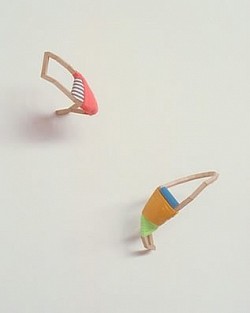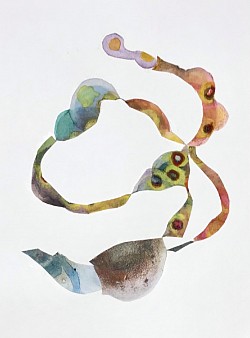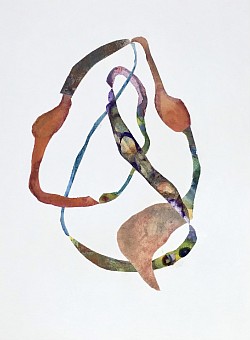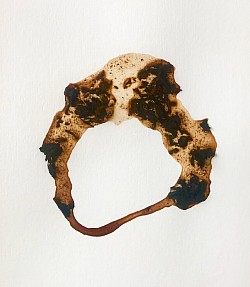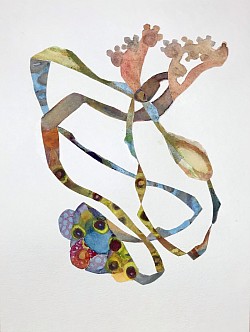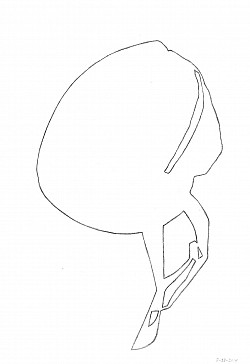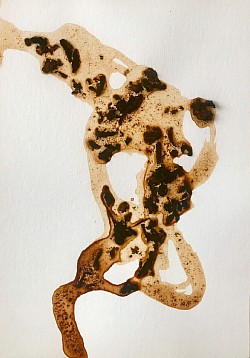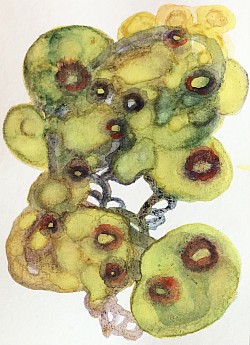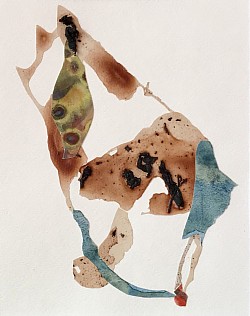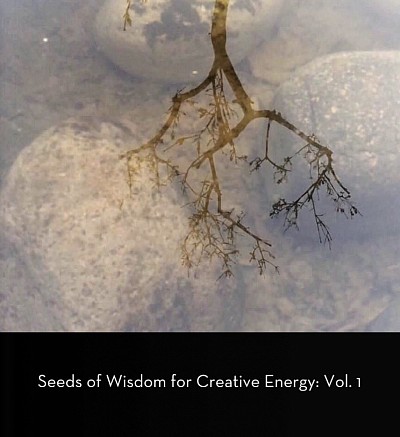Home
Introduction
In 2004, Robert M. Hopkins, an American artist from California, moved from downtown Los Angeles to China after finding romance in Beijing. In following his heart, Hopkins had to balance his studio practice with the challenges of teaching English and assimilating to a new culture. Yet, through a process of osmosis and acclimation in the studio, new work emerged — beginning first with a series of wall sculptures, entitled Blind Insights, which gradually evolved alongside Syncopations, a series of collaged watercolors, as well as Tea Passages, a series of process paintings using tea pigments, and an innovative series of digital prints, Microcosms. We invite you to follow Hopkins’s creative journey, as it unfolds here — his official website and online studio-gallery, documenting the evolution of his work and life as an artist.
Highlights
A brief sample of Hopkins‘s portfolio with personal notes.
Insight 1:
“I am inspired by notions of circadian rhythms and
how they literally encompass the passage of time
— circadian rhythms are the very rhythm of life."
Insight 2:
“I’ve made a logo moniker — rmh², derived from my
initials in the form of an equation ( r x m = h² ),
which expresses my studio approach as follows:
Over time, routines (r) create a momentum (m) that
transforms one’s life into a rhythm of harmony (h)
and happiness (h).”
Insight 3:
“I see my work operating like "feedback loops”
between myself and life as a creative journey.
I am especially intrigued by the dynamics of
movement — a signature quality I employ in my
work through a variety of formal approaches.
I equate movement with visceral intuition and
creative energy: a process I like to describe
as “intuition-fruition”.
Insight 4:
“It was inevitable I would eventually choose a
Chinese name — Hai Tao (海涛), which means
Ocean Wave. In Chinese culture it represents
being “vast as the sea” and broad-minded. It
also means being flexible and adaptable like
flowing water. Appropriately enough, my favorite
quote from Lao Tzu is: “Stand like a mountain,
flow like water.”
Insight 5:
“After years of living and working in China as a
foreign English teacher and artist, I’ve come to
experience “creative chaos” in the most authentic
and visceral way, be it in the classroom, studio or
beyond. I humbly define and embrace “creative
chaos” as follows: "When the going gets chaotic,
the creative get going!"
Insight 6:
“I enjoy exploring the continuum between absolutes
— the shades of grey between black and white; the
resonance of colors from living life; the journey
from the river to the sea.”
Print Version of Journal
The first book of my online Journal is now available, with plans of releasing more as a yearly volume series. Entitled “Seeds of Wisdom for Creative Energy”, each volume will include 24 entries of photography & text as they appear online in their bi-weekly format. In terms of design, the Journal platform has a blogging limit of 99 entries, so as older entries are removed to make room for newer ones, they will become available for inclusion in the next issue. See my gift store below for more information about purchasing and ordering books from this series.
Online Gift Store: Books and more!
This is my online gift store, Seeds of Wisdom Collection — the flagship store for purchasing my series of photo-journal books, "Seeds of Wisdom for Creative Energy", along with an intriguing array of related merchandise. Perfect for all of your gift giving needs, and especially designed for those seeking “more zest in their quest.”
Just tap below and explore! (Grab your favorite refreshment while you’re at it.)


